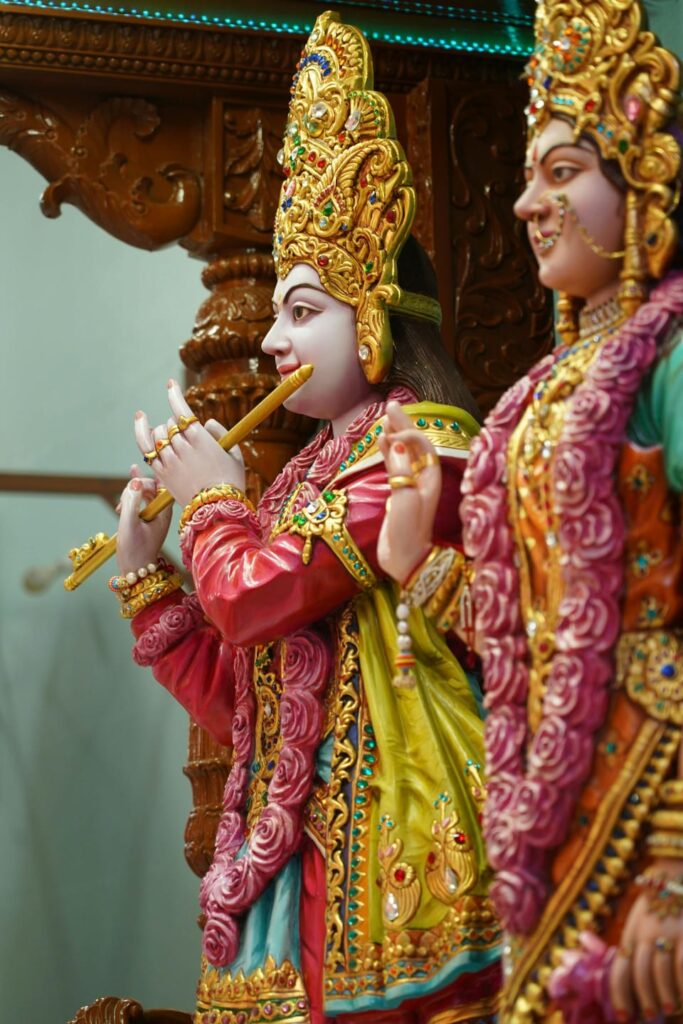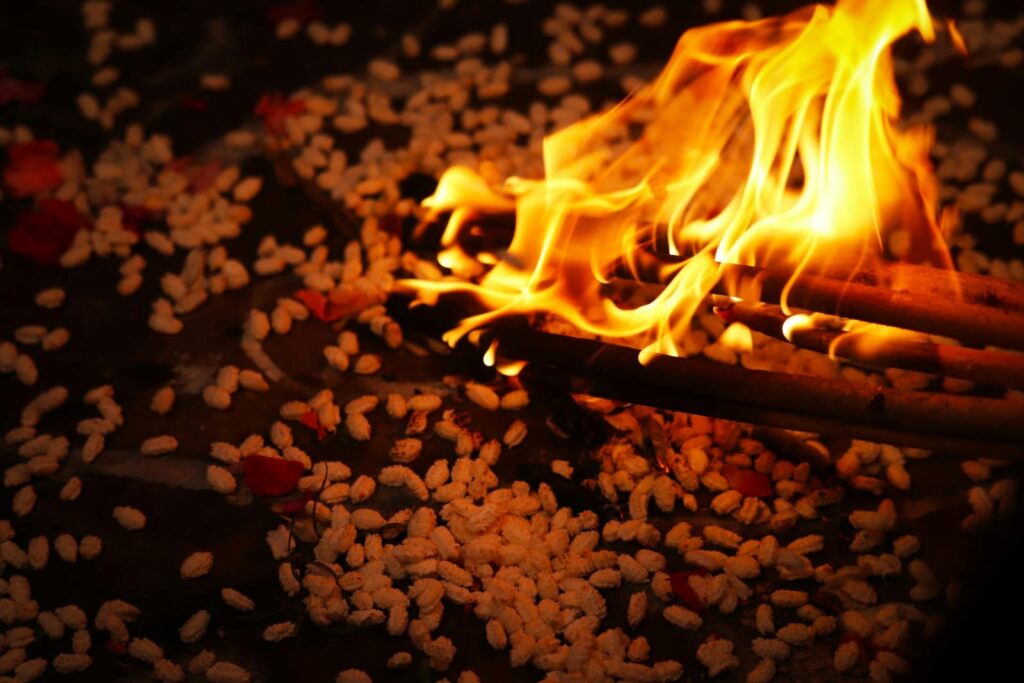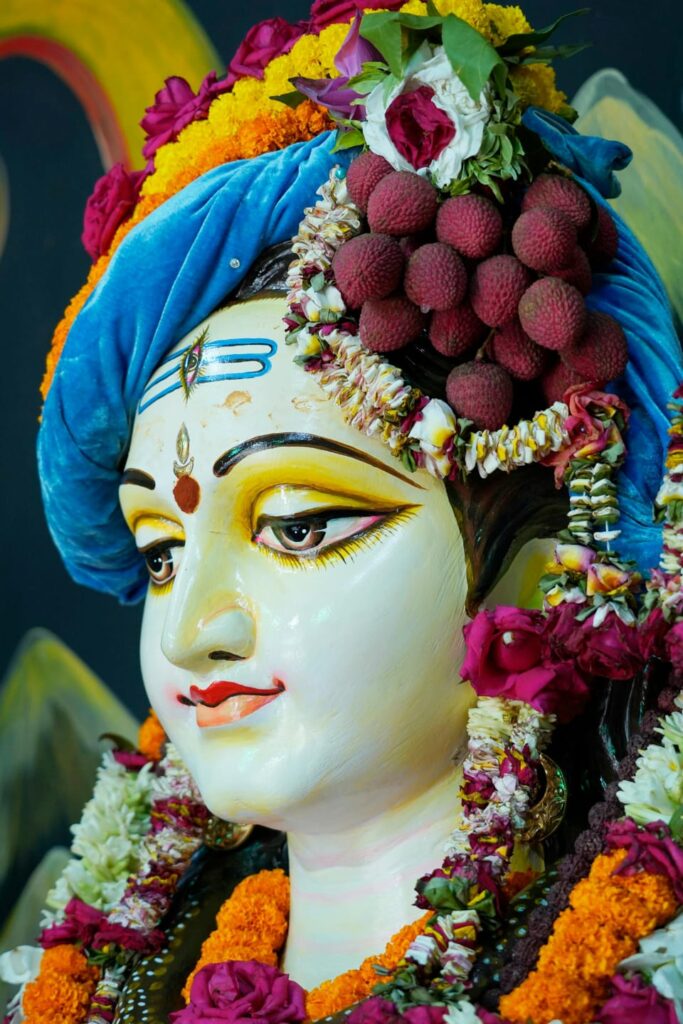What is Sanatan Dharma?
Sanatan Dharma, often referred to as the “eternal religion,” is one of the world’s oldest and most profound spiritual traditions. Rooted in the Indian subcontinent, it is more commonly known today as Hinduism. However, the term “Sanatan Dharma” conveys a deeper and more timeless essence than the modern name suggests. In this blog, we will explore the origins, principles, practices, and significance of Sanatan Dharma, shedding light on its enduring relevance in contemporary society.
Origins and Historical Context at sanatan dharma

Sanatan Dharma has no specific founder, and its origins are lost in the mists of time. It is believed to be as old as humanity itself, emerging from the spiritual practices and revelations of the ancient sages and seers of India, known as the Rishis. The foundational texts of Sanatan Dharma, the Vedas, were composed over 5,000 years ago, although the oral traditions they capture are much older. These texts, along with subsequent scriptures like the Upanishads, Mahabharata, Ramayana, and Puranas, form the bedrock of Sanatan Dharma.
The Vedas are considered apauruṣeya, meaning “not of human origin.” They are believed to be a divine revelation, transmitted to the Rishis in deep meditative states. This divine knowledge, encapsulated in hymns, rituals, and philosophical discourses, provides the guiding principles of Sanatan Dharma.
Core Principles
Sanatan Dharma is not merely a religion in the conventional sense but a comprehensive way of life. Its principles encompass every aspect of human existence, from ethical conduct and social responsibilities to spiritual practices and ultimate liberation. Here are some of the core principles:
Dharma
The concept of Dharma is central to Sanatan Dharma. It refers to the righteous path, the moral law that sustains the universe, society, and individuals. Dharma encompasses duties, rights, laws, conduct, virtues, and the “right way of living.” Each individual has their own Dharma, determined by their age, caste, gender, and occupation, known as Svadharma.
Karma of sanatan dharma
Karma, the law of cause and effect, is another fundamental principle. It posits that every action has consequences, and individuals are responsible for their deeds. Good actions lead to positive outcomes, while negative actions result in suffering. This principle underscores the importance of ethical behavior and accountability.
Samsara and Moksha
Sanatan Dharma teaches that life is a cycle of birth, death, and rebirth, known as Samsara. The ultimate goal is to attain Moksha, or liberation, which is the release from this cycle. Moksha is achieved through self-realization and by realization of one’s unity with the divine.
Atman and Brahman
At the heart of Sanatan Dharma is the belief in the Atman, the individual soul, and Brahman, the supreme universal soul. The Upanishads teach that Atman and Brahman are one and the same. Realizing this oneness is the essence of spiritual enlightenment.
Ahimsa
Ahimsa, or non-violence, is a key ethical tenet. It promotes the idea of causing no harm to any living being, fostering compassion and respect for all forms of life. Mahatma Gandhi popularized this principle in the 20th century, making it a cornerstone of his philosophy of non-violent resistance.
Practices and Rituals
Sanatan Dharma encompasses a wide range of practices and rituals designed to lead individuals toward spiritual growth and understanding. These practices can be broadly categorized into daily rituals, life-cycle rituals, and festival celebrations.
Daily Rituals

Daily rituals, known as Nitya Karma, are integral to the life of a practitioner. These include prayers, meditation, recitation of scriptures, and offering food and water to the deities. The Sandhyavandanam, a set of prayers performed at dawn, noon, and dusk, is a common daily practice.
Life-Cycle Rituals of eternal
Life-cycle rituals, or Samskaras, mark significant events in a person’s life, from birth to death. There are sixteen major Samskaras, including the naming ceremony (Namakarana), the sacred thread ceremony (Upanayana), marriage (Vivaha), and funeral rites (Antyeshti). These rituals serve to sanctify and guide individuals through different stages of life.
Festivals and Celebrations of truth

Sanatan Dharma is rich in festivals and celebrations, which vary by region and community. Major festivals include Diwali, the festival of lights; Holi, the festival of colors; and Navaratri, a nine-night festival celebrating the divine feminine. These festivals are occasions for communal worship, feasting, music, dance, and the reinforcement of cultural and spiritual values.
Philosophical Schools
Sanatan Dharma encompasses diverse philosophical schools, each offering unique perspectives on the nature of reality, the self, and the divine. Some of the major schools include:
Advaita Vedanta
Advaita Vedanta, articulated by Adi Shankaracharya, teaches the non-dualistic philosophy that Atman (the individual soul) and Brahman (the ultimate reality) are identical. This school emphasizes the illusory nature of the material world and the ultimate unity of all existence.
Dvaita Vedanta
Dvaita Vedanta, founded by Madhvacharya, proposes a dualistic interpretation, asserting that the individual soul and the supreme being are distinct and separate. This school emphasizes personal devotion to a personal God.
Vishishtadvaita
Vishishtadvaita, developed by Ramanujacharya, offers a qualified non-dualism. It teaches that while the individual soul and God are distinct, they are also inseparably connected. This school balances the personal and impersonal aspects of the divine.
Significance in Contemporary Society
Sanatan Dharma, with its profound spiritual insights and ethical guidelines, continues to be relevant in contemporary society. Its principles of Dharma, Karma, and Ahimsa provide a moral framework that transcends cultural and geographical boundaries. In a world facing challenges such as environmental degradation, social inequality, and conflict, the timeless wisdom of Sanatan Dharma offers valuable guidance.
Environmental Ethics
Sanatan Dharma’s reverence for nature, encapsulated in the concept of Vasudhaiva Kutumbakam (the world is one family), promotes environmental stewardship. Practices such as tree planting, river worship, and the celebration of natural elements underscore the interconnectedness of all life and the importance of ecological balance.
Social Harmony
The principle of Dharma encourages individuals to fulfill their duties towards family, society, and the world at large. This fosters social harmony and cooperation. The concept of Seva (selfless service) inspires charitable activities and community service, contributing to societal well-being.
Spiritual Well-being
In an era of stress and materialism, the spiritual practices of Sanatan Dharma, such as yoga, meditation, and mindfulness, offer pathways to inner peace and well-being. These practices are increasingly embraced worldwide for their benefits to mental and physical health.
Conclusion at the teachings of hinduism
Sanatan Dharma, the eternal way, is a rich and complex tradition that encompasses profound spiritual philosophies, ethical guidelines, and diverse practices. Its timeless principles continue to offer guidance and inspiration, promoting a holistic approach to life that balances the material and the spiritual, the individual and the universal. In understanding and embracing the essence of Sanatan Dharma, we can find a path to harmony, wisdom, and inner fulfillment, enriching our lives and the world around us.
